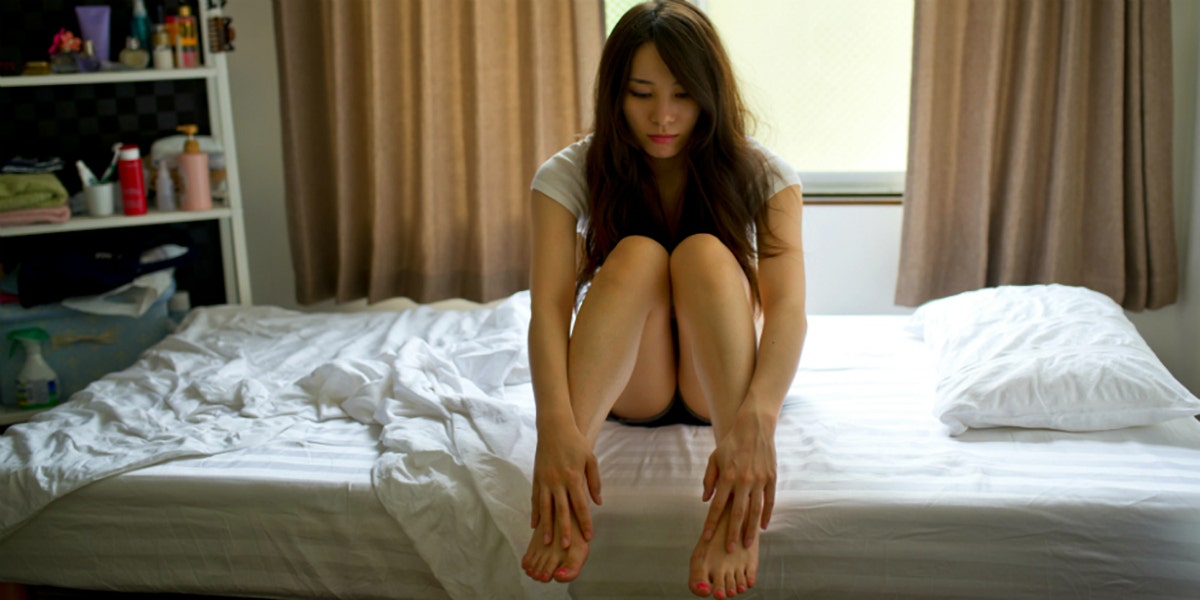11 Things That Happen To Your Heart, Mind & Body When You Don't Get Enough Sleep
Sleep deprivation is no joke.
 Getty
Getty Did you know that not getting enough sleep is slowly killing you? Sure, it sounds a little dramatic, but if you look at all the data, it's an unavoidable truth.
The typical adult needs seven to nine hours of rest each and every night.
We all know that sleep is very important, but studies show that most of us aren’t getting what we need.
The older we get, the more our lives fill up with work, college, and kids.
Therefore, sleeping becomes less of a priority.
The effect is more than just eye rubbing and feeling tired.
Not getting enough sleep has serious consequences for your brain and body.
A lack of sleep will cause your physical and mental health to suffer.
RELATED: What Your Sleeping Pattern Says About Your Relationship, Says Study
Matthew Walker, a neuroscientist who directs the sleep and neuroimaging lab at U.C. Berkeley, told Business Insider, “The shorter your sleep, the shorter your life.”
How exactly does this happen?
Here are 11 painful, exhausting and downright dangerous things that happen when you don't get enough sleep.
1. An increased risk of cancer
Scientists link disrupted sleep schedules to increased risks for several cancers, most notably colon and breast cancers.
2. Your skin ages faster
Studies proved that sun-damaged skin doesn’t heal as well for poor sleepers, so those people wind up showing more signs of skin aging.
3. An increased risk of depression and mood swings
Not getting enough hours each night also negatively affects your mental abilities and emotional state. The Sleep Foundation states that sleeplessness and depression have a "bi-directional relationship."
"This means that poor sleep can contribute to the development of depression and that having depression makes a person more likely to develop sleep issues."
You may feel more impatient or prone to mood swings.
It can also cause you to have depressive episodes and anxiety attacks.
4. You may gain weight
While there's nothing inherently wrong with gaining weight, people who don’t get enough rest have more cravings for unhealthy meals and a harder time resisting high-calorie foods which, over time, can lead to health problems.
Researchers think hormonal imbalances that result from sleep deprivation are responsible for this.
5. Your vision becomes impaired
The longer you are awake, the more visual errors you’ll encounter, and the more likely you are to experience outright hallucinations.
Lacking rest also causes tunnel vision, double vision, and perceived dimness.
6. A weakened immune system
Prolonged sleep deprivation and even one night of sleeplessness can impede your body’s natural defenses against infections and diseases.
7. An increased risk of heart attack or stroke
Not letting yourself rest also affects your body’s ability to heal and repair the blood vessels and heart.
Getting enough sleep is vital to keep your heart and blood vessels healthy, including your blood sugar, blood pressure, and inflammation levels.
Therefore, sleeping less increases your risk for heart attack and stroke.
8. Your sex drive declines
Sleep deprivation and disturbed rest, consequently, reduce libido and increase sexual dysfunction, like erectile dysfunciton.
9. You may experience impaired motor skills
In addition to a decrease in fine motor skills, lack of sleep also seems to affect your ability to carry on a conversation — much like having too much to drink.
You are clumsier, less productive, and have a hard time concentrating.
10. Your memory may begin to fail you
Studies show that lack of sleep affects working memory and divided attention.
UCSF also reports that deep sleep is one of the key factors in learning. The report details that, "during non-REM sleep, slow brain waves bolster neural touchpoints that are directly related to a task that was newly learned while awake, while weakening neural links that are not."
11. You're at an increased risk of a car accident
Drowsy driving is dangerous, because sleep deprivation can have similar effects on your body as drinking alcohol.
Someone who stays awake for 18 hours straight drives like someone with a blood alcohol level of .05 - for reference, .08 is considered drunk.
These are only some of the health problems that are caused by a lack of rest.
There are many more consequences associated with it, but remember this if nothing else - people who lack consistent sleep will likely die sooner.
Make sure you spend more time with your pillow and don’t overexert yourself.
Your body will thank you for it.
Mitzi J Hernandez is a writer who focuses on self-care, health and wellness, and self-love. For more of her self-care content, visit her Twitter page.
